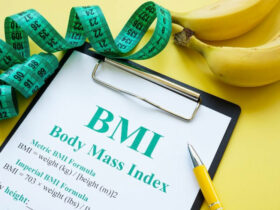Welcome to our article on swollen eyes and stomach pain. If you've ever experienced the discomfort of eye swelling and abdominal discomfort, you may be wondering what could be causing these symptoms. In this article, we will explore the various potential causes of swollen eyes and stomach pain, providing you with valuable insights to help you understand and address these issues.
Key Takeaways:
- Swollen eyes and stomach pain can have various underlying causes.
- Eye swelling can be a symptom of allergies, infections, or eye strain.
- Abdominal discomfort may be caused by gastritis, food intolerances, or gastrointestinal infections.
- There are overlapping causes that can affect both the eyes and the stomach.
- Seek medical attention if you experience persistent symptoms, severe pain, or sudden onset.
Understanding Eye Swelling and Irritation
Eye swelling, also known as swollen eyelids or puffy eyes, can be a bothersome symptom that may result from various causes. In this section, we will explore the common reasons behind eye swelling and discuss associated symptoms. If you are experiencing eye irritation or noticeable puffiness, it is essential to understand the potential underlying factors to determine the appropriate course of action.
Allergies are a prevalent cause of eye swelling. When our eyes come into contact with allergens such as pollen, pet dander, or dust mites, they can become red, itchy, and swollen. Seasonal allergies, also known as hay fever, often trigger these symptoms. If you notice that your eyes get puffy during specific times of the year or in particular environments, it may indicate an allergic reaction.
Infections, such as conjunctivitis, can also lead to eye swelling. Conjunctivitis, commonly referred to as pink eye, is an inflammation of the conjunctiva — the thin, clear tissue that covers the white part of the eye and lines the inner surface of the eyelids. Along with eye swelling, conjunctivitis can cause redness, discharge, and an uncomfortable, gritty sensation in the eyes. It is important to seek medical advice if you suspect an infection.
Eye strain can contribute to puffy eyes. Spending long hours in front of digital screens, reading for extended periods, or performing tasks that require intense focus can strain the eyes, leading to fatigue and swelling. Taking regular breaks, practicing the 20-20-20 rule (looking at something 20 feet away for 20 seconds every 20 minutes), and ensuring proper lighting can help alleviate eye strain-related symptoms.
"Eye swelling can result from allergies, infections, and eye strain. Understanding the underlying causes is crucial in managing this uncomfortable symptom."
Aside from these common causes, it is important to mention that eye swelling can sometimes be a sign of an underlying medical condition that requires attention. If you experience persistent eye swelling, severe pain, changes in vision, or other concerning symptoms, it is recommended to consult an eye care professional or healthcare provider for further evaluation and guidance.
Associated Symptoms of Eye Swelling:
- Redness and itchiness in the eyes
- Tearing or watery eyes
- Sensitivity to light
- Discharge or crusting
- Burning or stinging sensation
Unraveling Abdominal Discomfort and Digestive Issues
Abdominal discomfort and digestive issues can be quite bothersome, causing discomfort and impacting daily life. These symptoms can manifest as a bloated stomach, stomach cramps, or a persistent stomach ache. Understanding the underlying causes is essential for effective management and relief.
Common Causes of Abdominal Discomfort
There are several possible causes of abdominal discomfort and digestive issues. Some of the most prevalent culprits include:
- Gastritis: Inflammation of the stomach lining, often resulting from infection or prolonged use of nonsteroidal anti-inflammatory drugs (NSAIDs).
- Food intolerances: Sensitivity or allergic reactions to certain foods, such as lactose or gluten.
- Gastrointestinal infections: Bacterial or viral infections that affect the digestive system, leading to discomfort and other symptoms.
These conditions can contribute to a range of symptoms, including bloating, gas, diarrhea, and constipation. It is important to be aware of the specific signs and symptoms associated with each condition to ensure the appropriate course of action.
When to Consult a Healthcare Professional
If you experience persistent abdominal discomfort or digestive issues that significantly affect your quality of life, it is crucial to seek medical advice. Additionally, certain warning signs should prompt immediate attention:
- Severe stomach cramps
- Unexplained weight loss
- Blood in the stool
- Intense, unrelenting stomach ache
If you notice any of these symptoms, it is imperative to consult a healthcare professional for a proper evaluation and diagnosis. They will be able to guide you on the best course of treatment based on your specific condition and needs.
"Understanding the root cause of abdominal discomfort and digestive issues is the first step toward finding relief and improving overall well-being."
Remember, everyone's body is unique, and what may trigger abdominal discomfort or digestive issues in one person may not be the same for another. A healthcare professional can help determine the appropriate steps to manage and alleviate these symptoms effectively.
In the next section, we will explore potential overlapping causes between swollen eyes and stomach pain, shedding light on how certain conditions can affect both areas of the body.

Potential Overlapping Causes of Swollen Eyes and Stomach Pain
Swollen eyes and stomach pain can sometimes be connected, indicating potential overlapping causes that affect both areas of the body. Understanding these causes is essential for proper diagnosis and treatment. Certain conditions, such as autoimmune disorders, infections, and medication side effects, can manifest symptoms that affect both the eyes and the stomach.
In autoimmune disorders like lupus, the immune system mistakenly attacks healthy tissues, leading to inflammation. This inflammation can affect the eyes, causing swelling and irritation, while also impacting the digestive system and leading to abdominal discomfort. Similarly, infections like conjunctivitis and gastrointestinal infections can trigger inflammation and discomfort in both the eyes and the stomach.
Medications can also contribute to swollen eyes and stomach pain. Some drugs may have side effects that cause both eye swelling and abdominal discomfort. For example, nonsteroidal anti-inflammatory drugs (NSAIDs) can cause digestive issues, while certain antihistamines can lead to eye swelling as a side effect.
Proper medical evaluation is crucial in identifying the root cause of swollen eyes and stomach pain. An accurate diagnosis will help determine the appropriate treatment plan and alleviate symptoms effectively. If you are experiencing both eye swelling and abdominal discomfort, it is important to consult a healthcare professional to determine the underlying cause and receive proper care.

By understanding the potential overlapping causes of swollen eyes and stomach pain, individuals can advocate for their own health and take necessary steps towards the appropriate treatment. Paying attention to symptoms, seeking medical advice, and following recommended treatments can help alleviate both eye swelling and abdominal discomfort, improving overall well-being.
Seek Medical Attention: When to Be Concerned
If you're experiencing swollen eyes and stomach pain, it's essential to know when to seek medical attention. While occasional eye swelling and abdominal discomfort can be normal, persistent or severe symptoms may indicate an underlying condition that requires professional evaluation and treatment.
If you notice **eye swelling** that doesn't subside within a few days or is accompanied by **abdominal discomfort**, it's advisable to consult a doctor. Additionally, if you experience **bloated stomach**, **stomach cramps**, or **stomach ache** that persists or worsens over time, seeking medical advice is crucial.
There are certain situations when you should be particularly concerned and seek immediate medical help. If you experience sudden and severe **stomach pain**, it could be a sign of a serious condition that requires prompt attention. Furthermore, if your swollen eyes and stomach pain are accompanied by other symptoms, such as fever, vomiting, or rapid weight loss, it's important to consult a healthcare professional.
Remember that everyone's body is unique, and the severity and duration of symptoms may vary. If in doubt, it's always better to err on the side of caution and seek medical advice. Your doctor will be able to evaluate your symptoms, conduct appropriate tests if necessary, and provide you with a proper diagnosis and treatment plan.

Conclusion
Understanding the possible causes of swollen eyes and stomach pain is crucial for maintaining your well-being. These symptoms can arise from various conditions, including eye swelling and abdominal discomfort. By recognizing the signs and seeking necessary medical advice, you can address the underlying issues more effectively.
Eye swelling, characterized by swollen eyelids and puffy eyes, may stem from allergies, infections, or eye strain. On the other hand, abdominal discomfort and bloated stomach could result from gastritis, food intolerances, or gastrointestinal infections. Recognizing these symptoms early on helps in determining the most appropriate course of action.
If you experience persistent or severe eye swelling or stomach pain, it's essential to consult a healthcare professional. They will evaluate your symptoms, perform necessary tests, and provide you with accurate diagnosis and treatment options. Don't overlook any accompanying symptoms or sudden onsets, as they may indicate more significant underlying issues that require medical attention. Your health should always be a priority.
Remember, addressing swollen eyes and stomach pain promptly can lead to a more effective and efficient recovery. Prioritize your well-being by seeking medical advice from trustworthy healthcare professionals who can guide you through diagnosis, treatment, and management. Take control of your health by staying informed and proactive.















